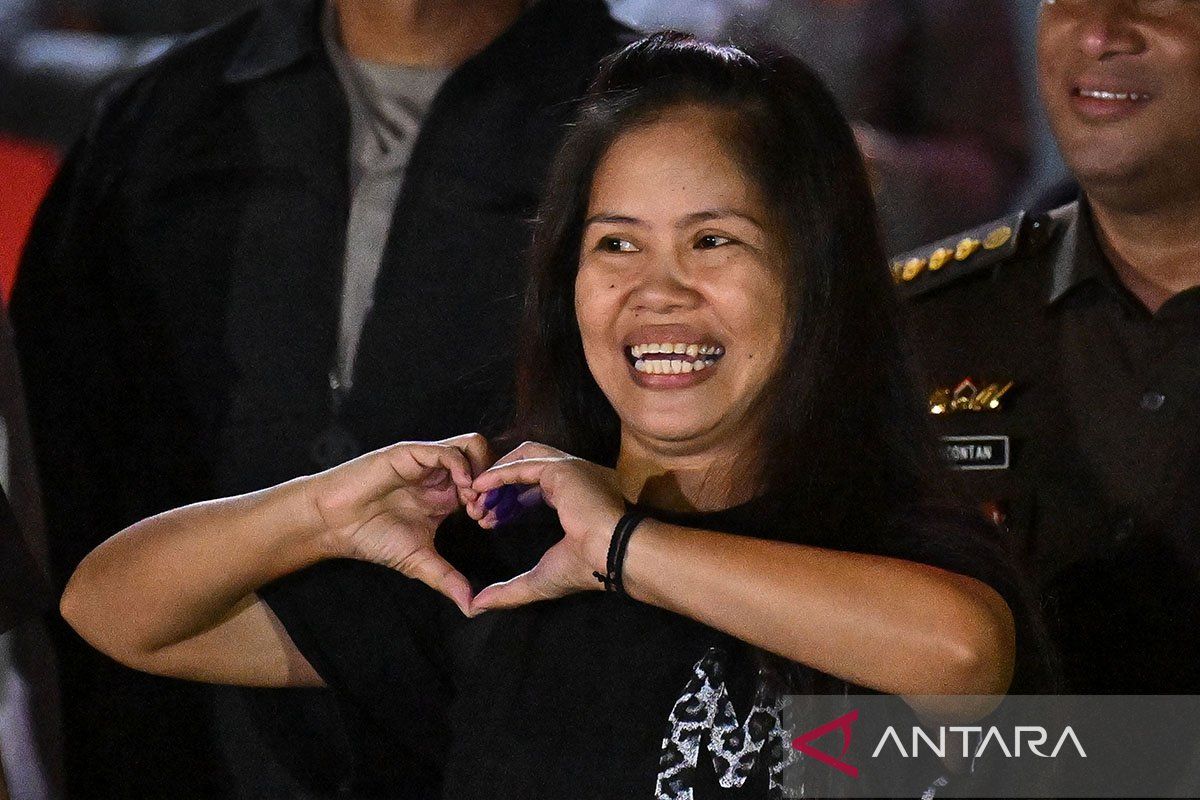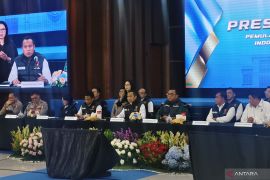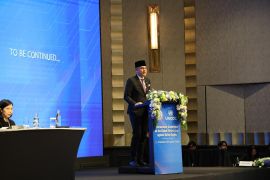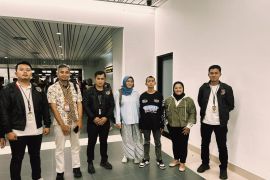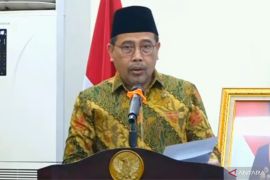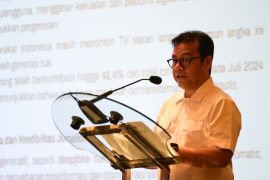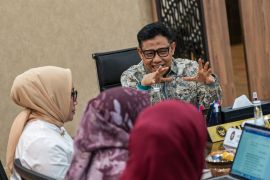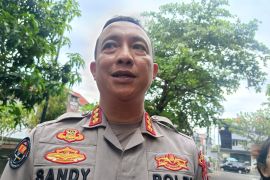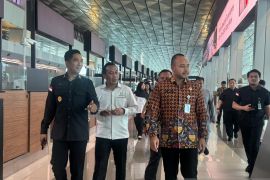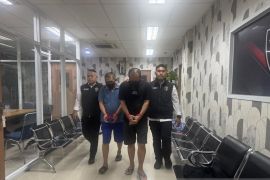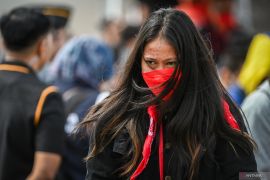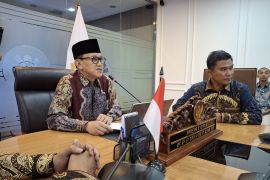The Filipino migrant worker fell victim to human trafficking and exploitation after being deceived with a job offer as a domestic worker.
She was arrested in Indonesia in 2010 after being duped into acting as a drug courier, according to a statement released by Kabar Bumi, an Indonesian migrant workers union on December 18.
Her case attracted national and international support.
Many migrant worker support groups, women's organizations, human rights organizations, religious organizations, and the general public jointly called for a pardon for Veloso and her repatriation to her home country.
Her return to her homeland this month is seen as an important milestone in the international collective struggle and solidarity to uphold justice and protection of migrant workers around the world.
Like Veloso, Indonesian migrant workers moving abroad via non-procedural channels often become victims of exploitation, abuse, and other acts of violence.
A man, identified with the initials RD, related his son's case to ANTARA on November 17.
RD is the father of a human trafficking victim who, along with 11 other Indonesian migrant workers, is confined in the Myawaddy conflict area in Myanmar.
"My 22-year-old child, along with 11 other Indonesians, are still in Myanmar," he said.
He informed that his son has been working for more than 12 hours every day, does not get wages, and sometimes has to undergo physical punishment, such as carrying heavy water jugs for one hour, upon failing to meet work targets.
"Once, he was imprisoned overnight, where sleeping was prohibited, he did not get any food, and suffered physical violence that caused bruises and swelling. After that, he was released and went back to work," RD said.
There are many other Indonesian migrant workers who have experienced exploitation, abuse, and violence while working abroad or falling victim to human trafficking.
According to Minister for the Protection of Migrant Workers (P2MI), Abdul Kadir Karding, 70 percent of human trafficking victims are migrant workers who go abroad through non-procedural channels.
"One crucial factor contributing to the high number of human trafficking victims is the non-procedural departure of migrant workers," Karding said during a public discussion held by the National Commission on Human Rights (Komnas HAM) on December 5.
"This opens up great opportunities for criminals to exploit them."
In addition, the majority of human trafficking victims are women and low-skilled workers. This group is vulnerable to exploitation physically, psychologically, and economically.
Minister Karding also highlighted non-procedural overseas departure as the main cause for the increase in human trafficking cases.
Therefore, he called for raising public awareness about safe overseas departure procedures.
Meanwhile, Deputy Minister for the Protection of Migrant Workers, Christina Aryani, has asked the public to be vigilant against fraudulent job advertisements flooding social media.
"There are so many young people that are lured by advertisements for working anywhere with high salaries," she said on December 9.
When the workers arrive in the destination countries, they are usually put to work as online gambling operators or online scammers, which is a new trend in human trafficking.
She asked the public to verify job offers on social media by inquiring with the Indonesian Migrant Workers' Protection and Service Agency (BP3MI) in the regions.
She assured that the BP3MI can trace the origin of job ads.
Prevention and handling
Director of the protection of Indonesian citizens and legal aid at the Foreign Ministry, Judha Nugraha, said that his side is implementing the "4P Strategy" to prevent and handle human trafficking cases.
The first strategy is the protection of victims, which includes providing a safe place, counseling, legal assistance, as well as rehabilitation and reintegration with society.
The second strategy is law enforcement, which is carried out by cooperating with the National Police's Criminal Investigation Agency. The agency works with law enforcement authorities in other countries to look into cases.
Currently, the National Police has established cooperation with 15 countries to handle cross-border crimes.
The third step is prevention by involving relevant parties such as social media managers to develop technology that can detect fraudulent job offers, online fraud, and online gambling.
The final step is the development of cooperation with other stakeholders, for example, communities and partners in the regions.
The P2MI Ministry has formed the Indonesian migrant workers' protection quick response team to combat syndicates that send migrant workers abroad illegally.
The team involves investigators, the police, the military, and other experts needed in handling the cases.
The multi-party cooperation is expected to combat syndicates that send migrant workers illegally, so that the root problem of human trafficking crimes can be addressed comprehensively.
Related news: BNN to tighten intelligence against drug trafficking in 2025
Related news: Army foils bid to smuggle 4 kg drugs from Malaysia into RI
Editor: Rahmad Nasution
Copyright © ANTARA 2024
